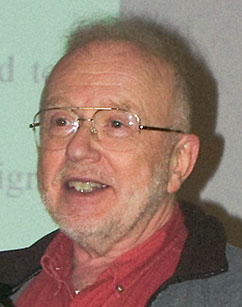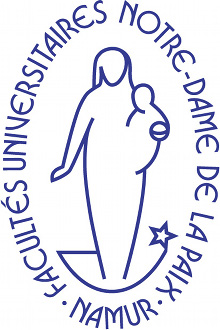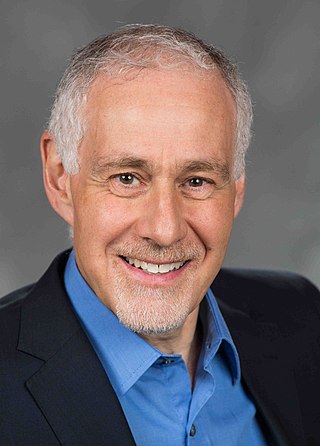Related Research Articles
Software engineering is an engineering approach to software development. A practitioner, called a software engineer, applies the engineering design process to develop software.

Bertrand Meyer is a French academic, author, and consultant in the field of computer languages. He created the Eiffel programming language and the concept of design by contract.

Barry William Boehm was an American software engineer, distinguished professor of computer science, industrial and systems engineering; the TRW Professor of Software Engineering; and founding director of the Center for Systems and Software Engineering at the University of Southern California. He was known for his many contributions to the area of software engineering.

David Lorge Parnas is a Canadian early pioneer of software engineering, who developed the concept of information hiding in modular programming, which is an important element of object-oriented programming today. He is also noted for his advocacy of precise documentation.
The Association for Computing Machinery's Special Interest Group on Software Engineering provides a forum for computing professionals from industry, government and academia to examine principles, practices, and new research results in software engineering.

Gerard J. Holzmann is a Dutch-American computer scientist and researcher at Bell Labs and NASA, best known as the developer of the SPIN model checker.

The University of Namur or Université de Namur (UNamur) is a Jesuit university in Namur, in the French Community of Belgium. Both teaching and research in the university are carried out by six faculties.
KAOS, is a goal-oriented software requirements capturing approach in requirements engineering. It is a specific Goal modeling method; another is i*. It allows for requirements to be calculated from goal diagrams. KAOS stands for Knowledge Acquisition in automated specification or Keep All Objectives Satisfied.
Mehdi Jazayeri is the founding dean of the faculty of informatics of the Università della Svizzera italiana in Lugano, Switzerland, and author of several textbooks on computer software. He was awarded the Influential Educator Award in 2012 by the ACM SIGSOFT.
A goal model is an element of requirements engineering that may also be used more widely in business analysis. Related elements include stakeholder analysis, context analysis, and scenarios, among other business and technical areas.
Colette Rolland is a French computer scientist and Professor of Computer Science in the department of Mathematics and Informatics at the University of Paris 1 Pantheon-Sorbonne. She is a leading researcher in the area of information and knowledge systems, known for her work on meta-modeling, particularly goal modelling and situational method engineering.
Alain Wegmann was a Swiss computer scientist, professor of Systemic Modeling at the École Polytechnique Fédérale de Lausanne (EPFL), and Information Technology and Services consultant, known for the development of the Systemic Enterprise Architecture Methodology (SEAM).
Carlo Ghezzi is an emeritus professor and former chair of software engineering at the Politecnico di Milano, Italy, and an adjunct professor at the Università della Svizzera italiana (USI), Switzerland. At the Politecnico, he has been the Rector's Delegate for research, department chair, head of the PhD program, and member of the academic senate and of the board of governors of Politecnico.

Mary Jean Harrold was an American computer scientist noted for her research on software engineering. She was also noted for her leadership in broadening participation in computing. She was on the boards of both CRA and CRA-W and was Co-Chair of CRA-W from 2003 to 2006.
Susan Beth Horwitz was an American computer scientist noted for her research on programming languages and software engineering, and in particular on program slicing and dataflow-analysis. She had several best paper and an impact paper award mentioned below under awards.

Alexander L. Wolf is an American computer scientist known for his research in software engineering, distributed systems, and computer networking. He is credited, along with his collaborators, with introducing the modern study of software architecture, content-based publish/subscribe messaging, content-based networking, automated process discovery, and the software deployment lifecycle. Wolf's 1985 Ph.D. dissertation developed language features for expressing a module's import/export specifications and the notion of multiple interfaces for a type, both of which are now common in modern computer programming languages.

T.H. Tse is a Hong Kong academic who is a professor and researcher in program testing and debugging. He is ranked internationally as the second most prolific author in metamorphic testing. According to Bruel et al., "Research on integrated formal and informal techniques can trace its roots to the work of T.H. Tse in the mid-eighties." The application areas of his research include object-oriented software, services computing, pervasive computing, concurrent systems, imaging software, and numerical programs. In addition, he creates graphic designs for non-government organizations.
Joëlle Coutaz is a French computer scientist, specializing in human-computer interaction (HCI). Her career includes research in the fields of operating systems and HCI, as well as being a professor at the University of Grenoble. Coutaz is considered a pioneer in HCI in France, and in 2007, she was awarded membership to SIGCHI. She was also involved in organizing CHI conferences and was a member on the editorial board of ACM Transactions on Computer-Human Interaction.

The Louvain School of Engineering or École polytechnique de Louvain (EPL) is a faculty of the University of Louvain, Belgium, founded in 1864. Known as the Faculty of Applied Sciences prior to 2008, it currently operates on the campuses of Louvain-la-Neuve and UCLouvain Charleroi.
Tsong Yueh Chen is an Australian academic at the Swinburne University of Technology who is a professor and researcher in program testing and debugging. He is ranked internationally as the most prolific author in metamorphic testing.
References
- ↑ Chung, Lawrence, et al. "Non-functional requirements." Software Engineering (2000).
- ↑ Nuseibeh, Bashar, and Steve Easterbrook. "Requirements engineering: a roadmap." Proceedings of the Conference on the Future of Software Engineering. ACM, 2000.
- 1 2 Axel van Lamsweerde at INGI Home Page. Accessed 10. 2014.
- ↑ Google Scholar profile